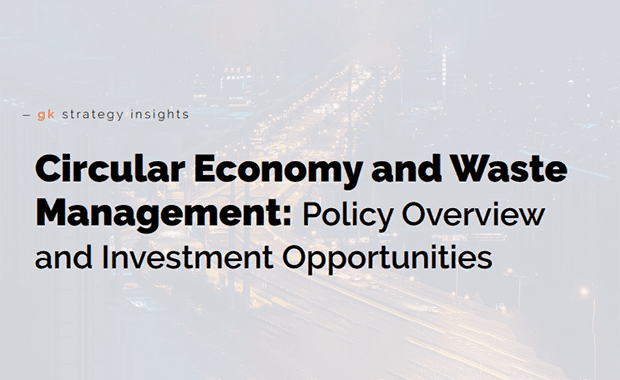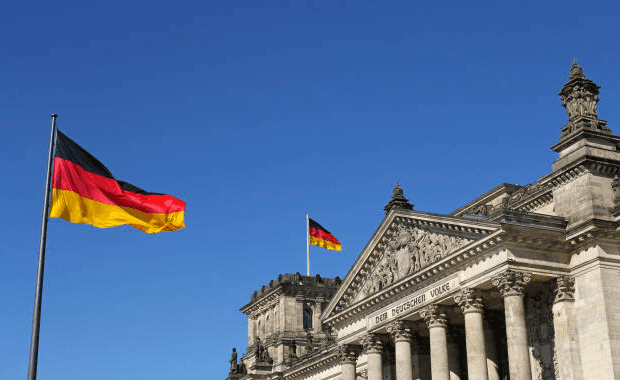Read our policy analysis on the Circular Economy and Waste Management written by Political consultant Natasha Pinnington.
To discuss the policy area further, please contact Natasha on natasha@gkstrategy.com

Read our policy analysis on the Circular Economy and Waste Management written by Political consultant Natasha Pinnington.
To discuss the policy area further, please contact Natasha on natasha@gkstrategy.com

Following the publication of the highly anticipated Adult Social Care White Paper, Phil Hope, former Care Minister, assesses the plans announced and identifies what more needs to be done to improve the sector.
Read Phil’s thoughts in Deeds not Words.
For more information, please contact GK’s Head of Health, Joe Cormack on joecormack@gkstrategy.com

On 24th November 2021, the new German coalition finally revealed the new Government coalition deal, including the announcement that Olaf Scholz, leader of the Social Democrats (SPD) will become the next German Chancellor. The coalition has revealed a nearly 170-pages long programme, which describes the objectives for both Germany and the EU.
Looking at the coalition agreement, formed by the SDP, the Greens and the conservative-liberal Free Democrats (FDP), some might say that their objectives are decidedly pro-European. First and foremost, the new German Government is hoping that the current Conference on the Future of Europe will lead to developments for a federal European state., moving towards a Community method that would give more weight to the European institutions. The coalition deal contains proposals to improve the democracy levels within the EU by introducing a common European electoral law, including transnational lists of candidates. The push is also for the EU to better implement its rule of law, especially to countries such as Poland and Hungary.
On foreign policy, the coalition is planning to push for a stronger European External Action Service. This includes the nomination of a real ‘EU foreign minister’, which would eliminate the requirement of unanimity for all foreign policy decision-making. Suggestions include the movement to qualified majority voting on foreign policy, but with a mechanism that would allow smaller countries to participate appropriately. The programme also announces for increased cooperation among the national armies of member states that are willing to integrate. These propositions have been made to ease basic matters within foreign policy decision-making and potentially increase the military capabilities of the EU bloc.
The new German coalition seems open to a reform of EU fiscal policies, and a subsequent form of fiscal solidarity, which might be perceived as positive by certain southern countries, such as Italy or Spain. Other plans include the possibility to back a ‘European reinsurance for national deposit guarantee schemes’, which is a mention to furthering the Banking Union. However, the parties have differences on the Economic and Monetary Union, and a strict reading of the Growth Pact would limit the possibilities to effectively restructure the Eurozone. Furthermore, the parties do not share the same vision for the constitutional limit on government borrowing, which has been provisionally eliminated in the EU due to COVID-19. This implies that FDP sees the Next Generation EU recovery package as to be provisional, while the other parties believe in a package that can be extended in the future. Another issue for the coalition and for the EU is the lack of money within German finances for green investments, which could cause conflict with the Greens.
With respect to Brexit and the nearly one-year old UK-EU Trade and Cooperation Agreement (TCA), the German coalition does not seem to move from previous stances taken by Germany. They will push for a common European policy towards the UK, and it insists on the need for a full compliance of the agreements signed by both sides, with a particular focus on the Northern Ireland Protocol. The coalition also highlights that any non-compliance from the UK must lead to the application of all agreed measures and countermeasures.
This coalition will have to overcome great challenges. The most important one will be to have strong enough legitimacy to ensure that Germany is continued to be viewed as on of the EU leaders. Germany has created its leadership within the EU following certain values, including federalism and the rule of law as an anchor for the state apparatus. The confirmation or rejection of these values will have enormous impacts on Germany’s relationship with the EU. The second challenge is seen by some by the introduction of the new chancellor figure of Scholz. Angela Merkel was seen as a form of consistency and a great diplomat in the formation and maintenance of relationships, for example between Germany and France or between the EU and more rebellious member states such as Poland and Hungary. The question is whether now the coalition will be good enough to form a united front and for Scholz to maintain such relationships on good levels. This is particularly the case with policy objectives and the current definition of Ministries and Ministers. For example, for foreign policy it looks like the Greens are claiming the seat, while defence will go to the FDP. This might bring to some clashes where the aspects of foreign and defence policy overlap. It will be Scholz’s role to ensure unity within the parties. Conflict might cause the Government to result disunited, which will have an impact both internally and externally, too, especially with the fourth wave of the pandemic arriving on German shores. Lastly, challenges can also be translated to Brexit and the relationship that the EU has with the United Kingdom. Germany calls for the strict application of the agreed treaties to make the most of the political opportunities that lie ahead. The three parties will have to go beyond decisions based on the ‘lowest common denominator’ and instead pursue a strong front to the challenges that both Germany and the EU have ahead.
If you would like to discuss the German political landscape, or require investment advisory on an international deal please contact lavinia@gkstrategy.com

Read our new expert view on the Starmer Shadow Cabinet reshuffle
For more information, or to discuss the piece, please contact jack@gkstrategy.com